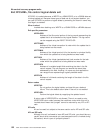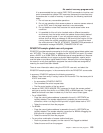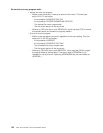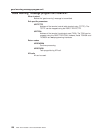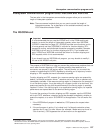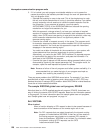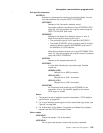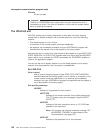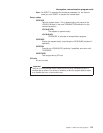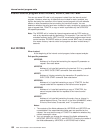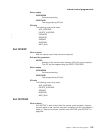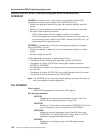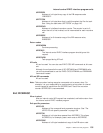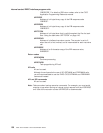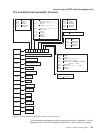
XPI calls
All can be used.
Important
There is no ‘UERCNORM’ return code at this exit point, because the exit is
invoked after a failure. The choice is whether or not to take the system default
action of queuing the request.
The XISLCLQ exit
XISLCLQ enables you to specify what action to take after a function shipping
request fails to allocate a session with a remote system for one of the following
reasons:
v The remote system is not in service.
v A connection to the remote system cannot be established.
v No sessions are immediately available, and your XISCONA exit program has
specified that the request is not to be queued in the issuing region.
Note that this exit is invoked
only
if the request to be shipped is of type EXEC CICS
START NOCHECK. For EXEC CICS requests other than those with the NOCHECK
option (which is only available on START commands) the ‘SYSIDERR’ condition is
raised in the application program.
You can use the exit to specify whether or not the failed request is to be locally
queued, to be executed when the connection is reestablished.
Exit XISLCLQ
When invoked
After a function shipping request of type EXEC CICS START NOCHECK
has failed because the remote system is not in service, a connection to the
remote system cannot be established, or no sessions are immediately
available, and your XISCONA exit program has specified that the request is
not to be queued in the issuing region.
Exit-specific parameters
UEPISPP
Address of a parameter list that contains:
UEPTCTSE
Address of the relevant terminal control table system entry.
The TCT system entry can be mapped using the DSECT
DFHTCTTE.
UEPXXTE
Address of the local transaction name, or 0 if SYSID was
specified in the command.
Note: Your program can use the transaction manager XPI
call INQUIRE_TRANDEF to obtain details of the
local transaction (see page 375).
UEPPLIST
Address of the parameter list for the command.
intersystem communication program exits
130
CICS TS for OS/390: CICS Customization Guide



